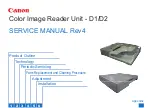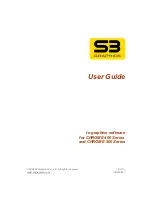
Prosody compact PCI installation guide
8
1.7
Speech and Data Paths
Speech and data associated with telephone calls are not terminated on the card, but are always
switched without modification to other cards, or on-board modules, for processing. The card
maintains bit integrity within timeslots between ports on the card (communication with host
storage can involve compression and therefore bit integrity is not maintained, but recreated on
playback).
There are five broad categories of Multi-channel path provided by the card, as follows:-
1. E1 (G703) ports — 60 or 120 calls (2Mbit system or ISDN) or
T1 (G703) ports - 46/48 or 92/96 calls (1.554Mbit T1 system or T1 PRI)
2. The host storage via the Compact PCI© bus — bi-directional for record and playback,
channel count is dependent on compression
3. The H.110 CTBus — 384 bi-directional speech paths (out of a possible 2048)
Additionally, any one 'source' of speech or data may be distributed to a number of separate
'sinks', but note that it is not possible via switching on the card alone, for more than one source
to feed a single sink. This conferencing function is only possible with the processing power of
the on-board Aculab Prosody modules or with third party conferencing cards.
Full details on the switching of calls using the Prosody cPCI card are available in a separate
publication ‘
Aculab Switch Control API Guide
’. This guide can be downloaded from the Aculab
company web site at
www.aculab.com
1.7.1 H.110
CTBus
loading
The Prosody cPCI card has a loading factor of 2 on the H.110 CTBus. The maximum loading
allowed on the H.110 CTBus is 20. The total loading is calculated by adding the loading factor
of all the devices on a single H.110 CTBus. The loading limit of H.110 means that no more than
10 Prosody cPCI cards can be used in the same host.









































